Why the 1031 Exchange Strategy Doesn’t Work in Canada: A Beginner’s Guide
If you’re dipping your toes into the world of real estate investment in Canada, you might have heard about the 1031 exchange—a popular tax deferral strategy in the United States that allows investors to defer capital gains taxes when they sell a property and reinvest the proceeds into a new property. However, this strategy doesn’t apply in Canada, leaving many Canadian investors wondering what alternatives they have. Fear not! This post is designed to break down the concept for those new to financial literacy and explore why the 1031 strategy doesn’t work in Canada, along with introducing you to some Canadian alternatives.
Disclaimer: This article is for informational purposes only and is not intended as financial, legal, or tax advice. The information provided herein is based on general principles and may not apply to specific individual circumstances. Readers are encouraged to consult with a professional advisor for advice tailored to their personal situation.
Understanding the 1031 Exchange
First, let’s simplify the 1031 exchange. Imagine you’ve got a collectible toy car you bought for $10, and now it’s worth $20. In the U.S., if you sell it and immediately invest in a similar toy worth at least $20, you wouldn’t have to pay taxes on your $10 profit right away. This is the essence of the 1031 exchange: It allows U.S. investors to defer capital gains tax by reinvesting in “like-kind” property, under specific conditions and timelines.
The Canadian Context
Why doesn’t this strategy work in Canada? Simply put, the Canadian tax system does not have a provision equivalent to the U.S. 1031 exchange. When you sell a property in Canada for more than you paid for it, you’re typically expected to pay capital gains tax in the year of the sale. This fundamental difference means Canadian investors need to look for other ways to manage capital gains taxes effectively. Here are some strategies that may be applicable in Canada:
Capital Gains Reserve
A closer Canadian counterpart is the Capital Gains Reserve. This mechanism allows sellers to defer the capital gain recognition over a maximum of five years, provided the sale proceeds are received over time. This is particularly useful when the buyer pays for the property in installments.
Seller Take-Back (STB) Mortgages
An STB mortgage is when the seller of a property provides financing to the buyer. If the repayment is structured over several years, the seller can potentially defer taxes on the capital gain through the Capital Gains Reserve, spreading the tax burden over the period payments are received.
Real Estate Investment Trusts (REITs)
While not a direct method for deferring taxes on individual property sales, investing in REITs allows Canadians to indirectly invest in real estate. REITs offer certain tax advantages and can be a way to participate in real estate markets without dealing with the complexities of direct property sales and purchases.
Key Takeaways
- The 1031 exchange is a U.S.-specific strategy that allows for the deferral of capital gains taxes under certain conditions. It does not apply in Canada.
- Canadian investors can explore alternatives like the Capital Gains Reserve and Seller Take-Back mortgages for deferring taxes in certain situations.
- Understanding your options and the tax implications of real estate transactions is crucial for effective investment planning in Canada.
While the 1031 exchange might seem like an attractive strategy for U.S. investors, Canadians have their own set of tools and strategies for managing real estate investments and the associated taxes. By exploring alternatives like the Capital Gains Reserve and Seller Take-Back mortgages, Canadian investors can navigate the tax landscape effectively. Always remember, consulting with a financial advisor or tax professional is key to making informed decisions that align with your investment goals and financial situation.
If you are wondering how to take advantage of the current real estate market and be not only ahead of the curve, but to be also tax advantaged, we work with leading mortgage and chartered accountants that can guide you through the tax labyrinth, combined with our real estate market knowledge, you will be be laying the bedrock of a strong financial foundation.
-The TanTeam Editorial




Leave a Reply
Want to join the discussion?Feel free to contribute!